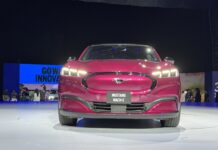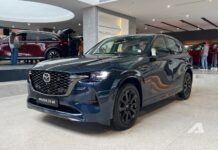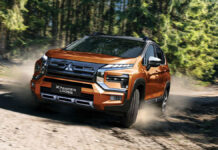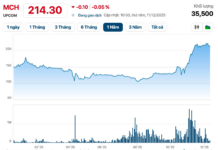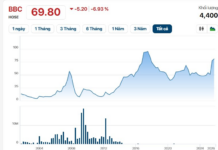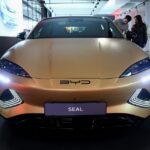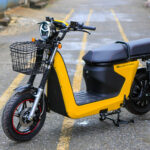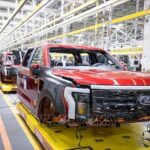
Baidu JIDU Robocars 07: The voice-controlled electric vehicle with a sporty design and impressive range.
Baidu, a leading technology group and China’s largest search engine, has unveiled its latest innovation: the JIDU Robocars 07. According to The Economist, this electric vehicle is predominantly voice-controlled, reducing the need for buttons and knobs. With autonomous driving capabilities and a sleek, sporty design, the JIDU Robocars 07 can travel up to 900km on a single 12-minute charge.
Baidu plans to launch this impressive vehicle in September, with a price tag of 220,000 Chinese yuan, equivalent to approximately 30,850 USD. Media outlets have dubbed such vehicles as “four-wheeled phones,” reflecting the growing trend of technology corporations, particularly smartphone manufacturers, venturing into the electric vehicle market.
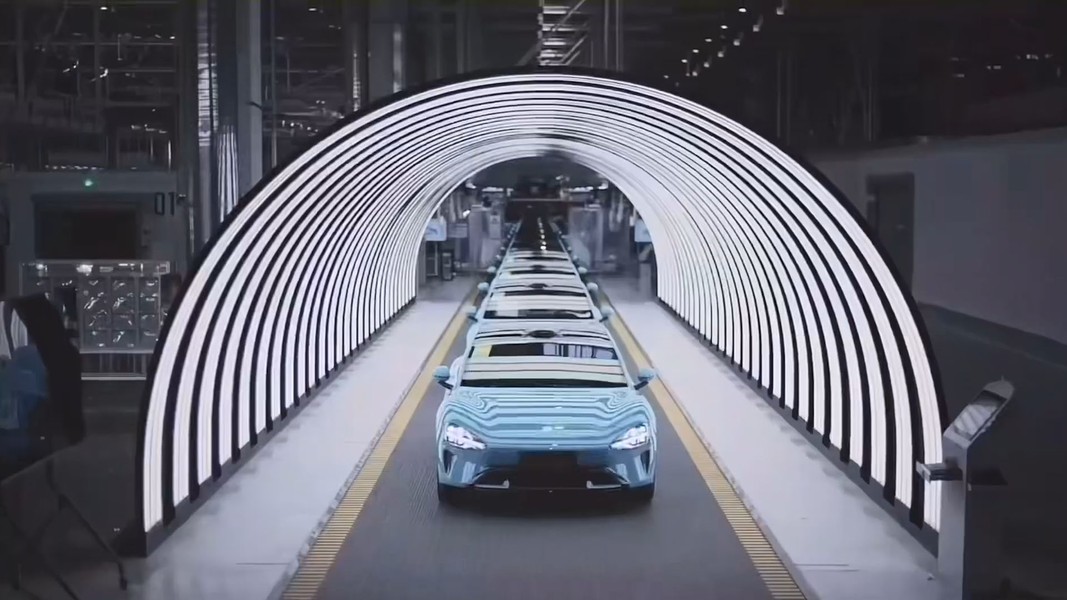
While Baidu is making strides in the autonomous electric vehicle space, another Chinese company, Huawei, a well-known mobile brand, has also begun selling its own electric car models. Similarly, Xiaomi, a smartphone manufacturer, launched its SU7 electric vehicle in March this year. As of August 21, 2024, Xiaomi has sold over 27,000 electric vehicles in the second quarter and is on track to reach 120,000 sales for the full year. The company currently operates 87 dealerships in 30 cities across China.
In contrast, Western technology giants seem to be lagging behind their Eastern counterparts. Rivian, backed by Amazon, has lost 90% of its value since its initial public offering in 2021. Waymo, a Google-backed electric vehicle company, is facing issues with product quality and safety following some technical glitches. Apple, the iPhone maker, invested over 10 billion USD and nearly a decade into its “Titan” project, only to eventually abandon it.
Even Dyson, the UK-based company renowned for its innovative vacuum cleaners and hair dryers, attempted to enter the electric vehicle market but ultimately fell short.
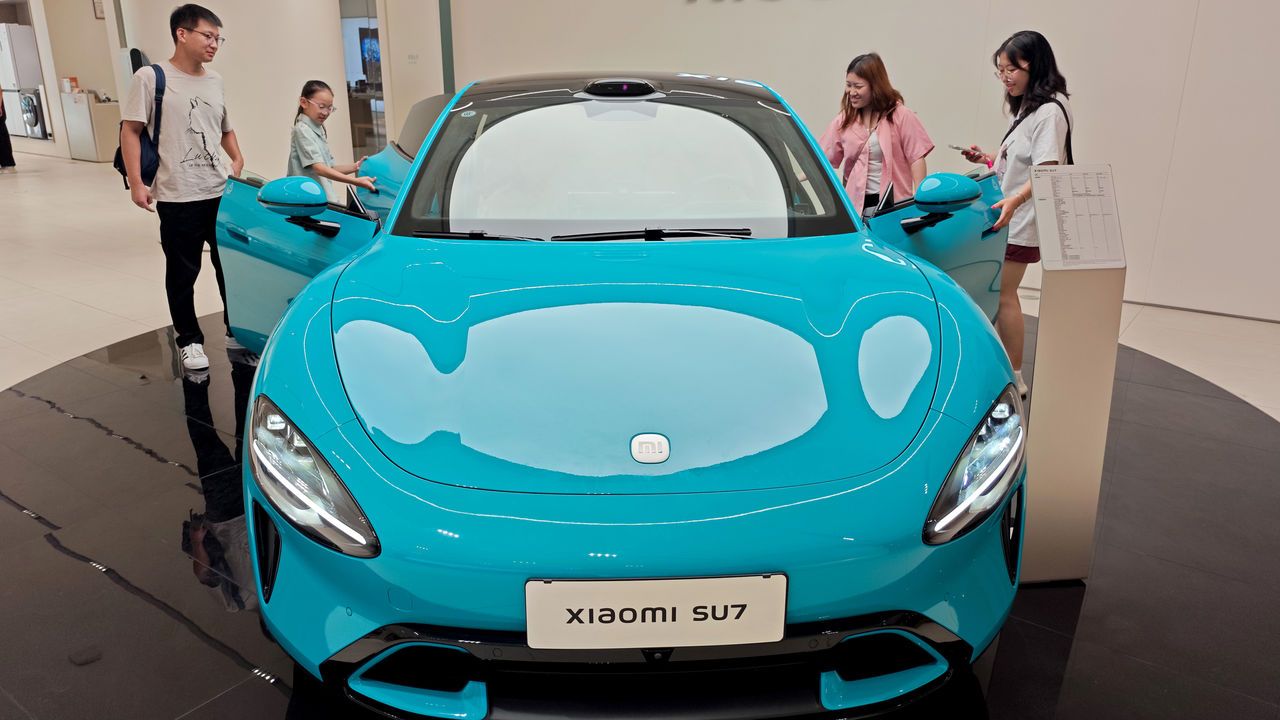
The Difference
The Economist attributes the contrasting fortunes to market differences between China and the West. Chinese car buyers tend to be much younger, and their primary focus is on software and in-car entertainment systems. This presents a unique opportunity for technology corporations to cater to this demographic.
Indeed, many of the successful electric vehicle brands in China today are led by entrepreneurs with a technology background rather than a traditional automotive industry pedigree. For instance, Li Auto, one of China’s largest electric vehicle manufacturers, was founded in 2015 by Li Xiang, an internet startup veteran. Similarly, Xpeng was established in 2014 by He Xiaopeng, a former software engineer.
Chinese tech companies are also approaching the market in unique ways. For example, Baidu, known for its online search capabilities, partnered with JIDU to create the Geely brand for electric vehicles. This strategy allowed Baidu to focus on its strengths in autonomous driving, voice recognition, and in-car entertainment software while leveraging JIDU’s expertise in vehicle manufacturing.

The success of the Geely brand further encouraged Baidu to establish Apollo Go, a division focused on developing self-driving taxis. Another example is Huawei, which partnered with Seres to develop the AITO brand, specializing in software design and marketing for electric vehicles. In the first half of 2024, Huawei sold an impressive 200,000 AITO cars.
At a Huawei car dealership in Beijing, the range of vehicles on display serves as a bold statement to the Apple Store across the street. Xiaomi, known for its smartphones, has also made a significant impact in the electric vehicle market, with sales figures surpassing expectations.
In fact, Xiaomi’s CEO, Lei Jun, had initially predicted that the company’s electric vehicles would need to be sold at a loss to compete with Tesla’s aggressive pricing. However, he recently retracted this statement, asserting that Xiaomi’s gross profit margin for electric vehicles would reach 5-10%, bringing the company closer to breakeven.
Following the launch of the SU7, Xiaomi received over 70,000 orders as of April 20, 2024, rapidly approaching its annual sales target. This surge in demand led Xiaomi to raise its sales goal to 100,000 electric vehicles for 2024.
A Wake-Up Call
While Apple abandoned its multi-billion-dollar, decade-long project, Xiaomi’s success in the electric vehicle market is a stark contrast and a wake-up call for Apple. “If I were Tim Cook, I would never do that,” said Lei Jun, founder, and CEO of Xiaomi, referring to Apple’s recent decision to scrap the Titan project.
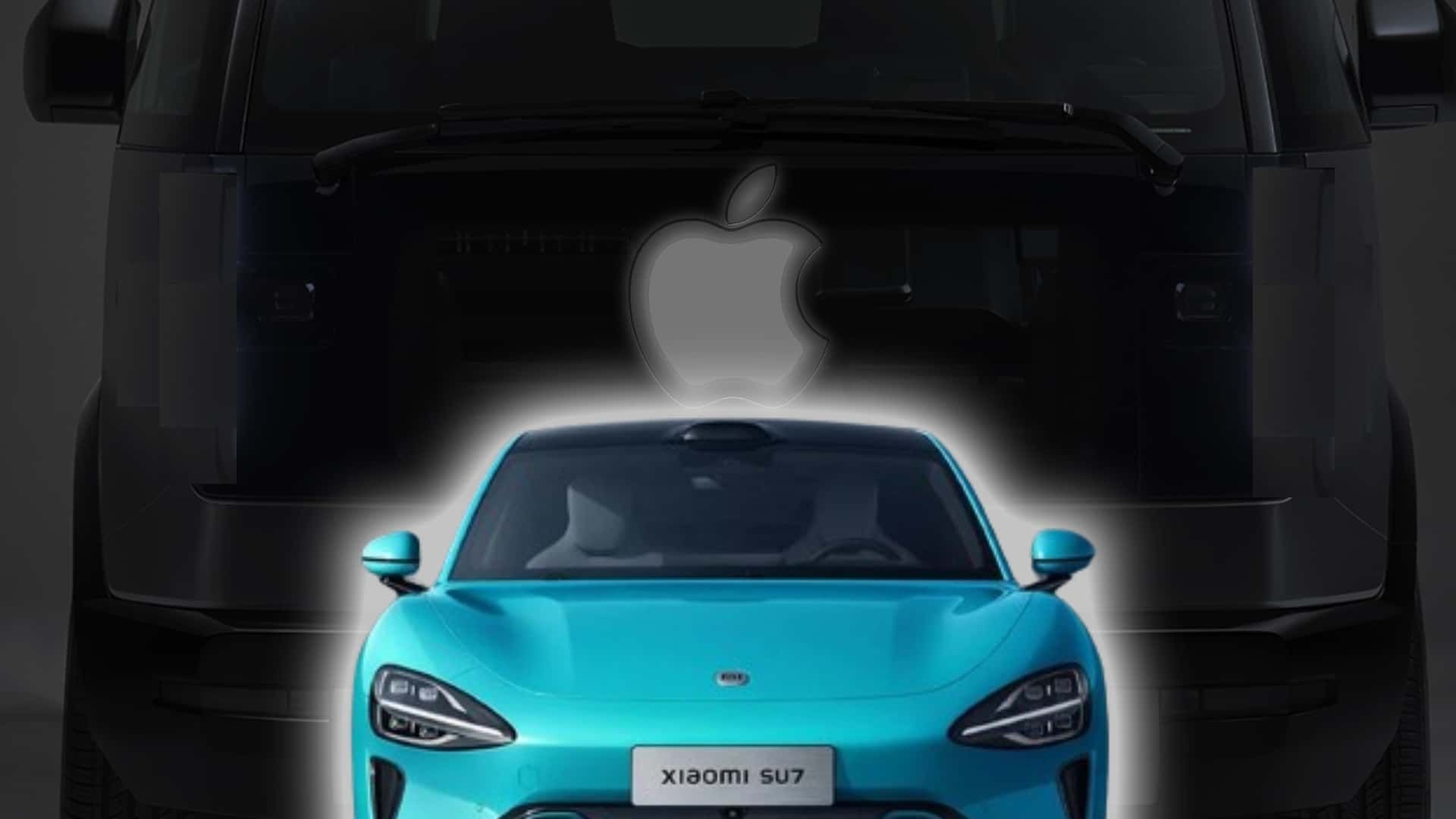
Just a month after Apple announced the end of its decades-long pursuit of the Apple Car, Xiaomi, the world’s third-largest smartphone manufacturer, set its sights on becoming a top-five global automaker. Unlike Apple’s costly and prolonged endeavor, Xiaomi achieved this feat in just three years. Xiaomi’s collaboration with BAIC has resulted in the production of the SU7 at a Beijing suburb factory, rolling out a new car every 76 seconds.
“Chinese companies are not afraid to try things they’ve never done before, whereas a company like Apple is too big to make quick decisions,” said Tycho de Feijter, an expert from Clingendael in the Netherlands.
Citi’s analysis suggests that if Xiaomi generates revenues of 300,000-400,000 USD this year, it will break even and turn a profit. Citi has also upgraded its forecast for Xiaomi’s gross profit margin for electric vehicles to 6% for 2024, up from the previously estimated loss of 10%. Additionally, Citi raised Xiaomi’s EPS by 25% for this year and predicted sales of up to 100,000 electric vehicles in 2024, 200,000 in 2025, and 280,000 in 2026.
Source: Economist
Largest taxi company in Nghệ An cancels car purchase contract with Toyota to switch to VinFast
Mr. Ho Chuong, CEO of Son Nam International Transport Co., has recently disclosed that he had previously signed contracts to purchase gasoline-powered vehicles from a Japanese car manufacturer. However, he has since diversified his investment portfolio by also venturing into VinFast electric vehicles, in order to embrace long-term and sustainable development.
Ford’s revenue in early 2024 shines with hybrid cars
Ford Motor, the car manufacturer, has kickstarted the year with robust sales fueled by its hybrid vehicle lineup.


